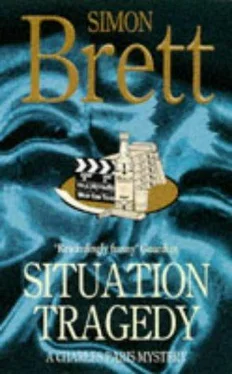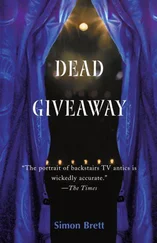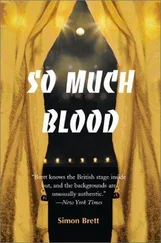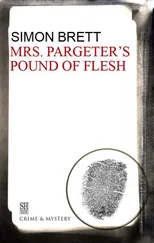Simon Brett - Situation Tragedy
Здесь есть возможность читать онлайн «Simon Brett - Situation Tragedy» весь текст электронной книги совершенно бесплатно (целиком полную версию без сокращений). В некоторых случаях можно слушать аудио, скачать через торрент в формате fb2 и присутствует краткое содержание. Жанр: Классический детектив, на английском языке. Описание произведения, (предисловие) а так же отзывы посетителей доступны на портале библиотеки ЛибКат.
- Название:Situation Tragedy
- Автор:
- Жанр:
- Год:неизвестен
- ISBN:нет данных
- Рейтинг книги:3 / 5. Голосов: 1
-
Избранное:Добавить в избранное
- Отзывы:
-
Ваша оценка:
- 60
- 1
- 2
- 3
- 4
- 5
Situation Tragedy: краткое содержание, описание и аннотация
Предлагаем к чтению аннотацию, описание, краткое содержание или предисловие (зависит от того, что написал сам автор книги «Situation Tragedy»). Если вы не нашли необходимую информацию о книге — напишите в комментариях, мы постараемся отыскать её.
Situation Tragedy — читать онлайн бесплатно полную книгу (весь текст) целиком
Ниже представлен текст книги, разбитый по страницам. Система сохранения места последней прочитанной страницы, позволяет с удобством читать онлайн бесплатно книгу «Situation Tragedy», без необходимости каждый раз заново искать на чём Вы остановились. Поставьте закладку, и сможете в любой момент перейти на страницу, на которой закончили чтение.
Интервал:
Закладка:
He wasn’t sure what a Red Theatre Co-operative member of his age would wear, because he had never met one. In fact he rather wondered whether there were any members of his age; the ones he had come across were all in their twenties and thirties. They were angry young men — no, he mustn’t say that, the use of the expression dated him — committed young men — that was better — and girls, often with very short hair, tight jeans and leather blousons, who tended to interrupt rehearsals with queries about what the Equity representative intended to do about the rising unemployment figures, or whether Shakespeare was inextricably allied to the capitalist system. Charles had even, briefly, worked with a Red Theatre Co-operative director on a production of King Lear, which saw the play as a socialist parable. To justify this reading, the King had to be seen as a symbol of traditional landowning conservatism and the division of his kingdom as a necessary step towards public ownership. As a result, the political sympathies of the audience had to be with Regan and Goneril in their attempts to reduce the power of the traditional hierarchy and impose a socialist state. Cordelia became a symbol of wishy-washy bourgeois uncommitted apathy, and the entrance of Lear with her dead in his arms showed how non-participation was tantamount to alliance with the corruption of capitalism. The tragedy of the play was the deaths of Cornwall, Regan and Goneril, martyrs to the cause of progress, but the production ended on a note of hope. Albany’s lines in the final scene.
All friends shall taste
The wages of their virtue, and all foes
The cup of their deservings,
were transposed to the very end of the play, and signified the start of the revolution. They were greeted by a great shout from all the company, dead bodies included, who all sang The Red Flag . The production, in spite of being hailed by Time Out as ‘a milestone in political theatre, showing that traditional plays need not just be commercial bullshit’, played to small houses throughout its short run.
The same director’s productions of Othello (about a black school-leaver unable to get a job) and Macbeth (an interpretation based on the lines
No, this my hand will rather
The multitudinous seas incarnadine,
Making the green one red)
also failed to reach more than a minority audience.
Given the lack of middle-aged models for his chosen role, Charles wore his own clothes. He went first to the house which had been cleared for filming, and summoned the elderly couple who lived there to the door.
‘Hello. My name’s Charles Paris. I was involved in the filming that West End Television was doing here the other week.’
‘Oh yes.’ The old man did not look unwelcoming. ‘I wondered when you lot would be back.’
‘Oh.’
‘I said to Rita, they’re bound to be back, didn’t I, Rita?’
‘You did, Lionel.’
‘Why?’
‘Well, the way I saw it was, you didn’t get no filming done that night, did you? So I put two and two together and realised that you’d want to do it another night, because you need it for your show.’
‘No, in fact — ’
‘And before you say anything else, let me say that I’m going to want twice the money you paid last time. The disruption and noise was much more than what you said it would be.’
It took Charles some time to explain that the filming had been covered in the studio and there wouldn’t be another fat facility fee going into the old couple’s coffers. Once he understood this, the old man was less accommodating. ‘What the bleeding hell d’you want then?’
‘I’m looking for someone who was around on the night of the filming. The black youth called John Odange. I wondered if you knew where I might find him.’
‘I don’t know nothing about that scum! We’re respectable people. We got a right to live in this house. We ain’t going to move on till the council comes up with what we think’s proper accommodation. Are we, Rita?’
‘No, Lionel.’
‘We’re quiet, respectable people,’ the old man shouted. ‘This used to be a nice road. Now we’ve got all these bloody squatters, living ten to a house, drinking, taking drugs, playing music! Bloody foreigners, and all! They aren’t even house-trained, a lot of them. They’re all. .’
He continued in the same vein for some time. Under this splenetic fusillade, Charles retreated and went to ask someone else where he might find John Odange.
He knocked on one of the doors from which the council’s padlock had been unscrewed and was answered by a pretty and very clean young mum with a baby. Yes, John Odange lived three houses down. She didn’t know whether he was likely to be in, but it was worth trying.
He was in. His tall frame filled the doorway. He wore a faded mauve T-shirt and black jeans. There was no sign of recognition when he asked what he could do for Charles.
He sounded wary, but not, as Charles had expected, deliberately aggressive.
‘I was involved in that filming which West End Television was doing a couple of weeks back.’
‘Uh-huh.’ Still no overt hostility.
‘I was one of the actors in the show and I. . I wanted to talk about it.’ To his annoyance, Charles found he was speaking in his own voice. Also he had difficulty in getting round to his prepared speeches about actors being workers as much as anyone else and the need for education and the vital role of the entertainer in spreading the Marxist message. He was daunted by John Odange, not by the man’s size and vouched militancy, but by the sharp intelligence in his eyes. He was not going to be easy to fool.
‘Come in.’ The tall youth moved to one side and Charles went into the house. Inside it was spotless. The old man up the road wouldn’t have believed how clean and sweet-smelling it was.
John Odange indicated a room to the right. It was a bedsitter lined with books. It too was immaculately tidy. By the window was a desk piled with more books and files. A portable electric typewriter still hummed, suggesting Charles had interrupted composition.
‘Are you a writer?’ he asked.
The black youth shook his head. ‘Only incidentally. I’m a student really. An unaffiliated student.’
‘What does that mean?’
‘It means I was at the London School of Economics, and I got involved in certain political activities, and suddenly there was trouble over my grant, and I found I was no longer at the London School of Economics. So I continue my studies here.’
He spoke without bitterness. There was no doubting his commitment, but the violent resentment which had been evident on the night of the filming had gone.
‘You want coffee?’
‘Love some.’
While John Odange went to fill the kettle, Charles wondered how to proceed. Faced with the young man’s quiet sincerity, his pose as a member of the Red Theatre Co-operative diminished to an insulting charade. But he had to get the information somehow.
John Odange returned, plugged the kettle in, sat down in his typing chair and looked straight at Charles. ‘So, you were an actor in the West End Television filming and you want to talk to me about it.’
‘Yes.’ Charles hesitated.
‘Hmm. So why would you want to come and talk to me? To tell me I’m a naughty boy to disrupt your precious show? To tell me I should allow other people the right to work? Well, if that’s your line, I can argue it through with you point by point. Okay, the evening degenerated. All that fighting with the food was pretty childish. And the fact that someone got killed, no one wanted that. But the basic point we were making, that remains valid. The filming was set up to make fun of the way we live.’
Читать дальшеИнтервал:
Закладка:
Похожие книги на «Situation Tragedy»
Представляем Вашему вниманию похожие книги на «Situation Tragedy» списком для выбора. Мы отобрали схожую по названию и смыслу литературу в надежде предоставить читателям больше вариантов отыскать новые, интересные, ещё непрочитанные произведения.
Обсуждение, отзывы о книге «Situation Tragedy» и просто собственные мнения читателей. Оставьте ваши комментарии, напишите, что Вы думаете о произведении, его смысле или главных героях. Укажите что конкретно понравилось, а что нет, и почему Вы так считаете.












